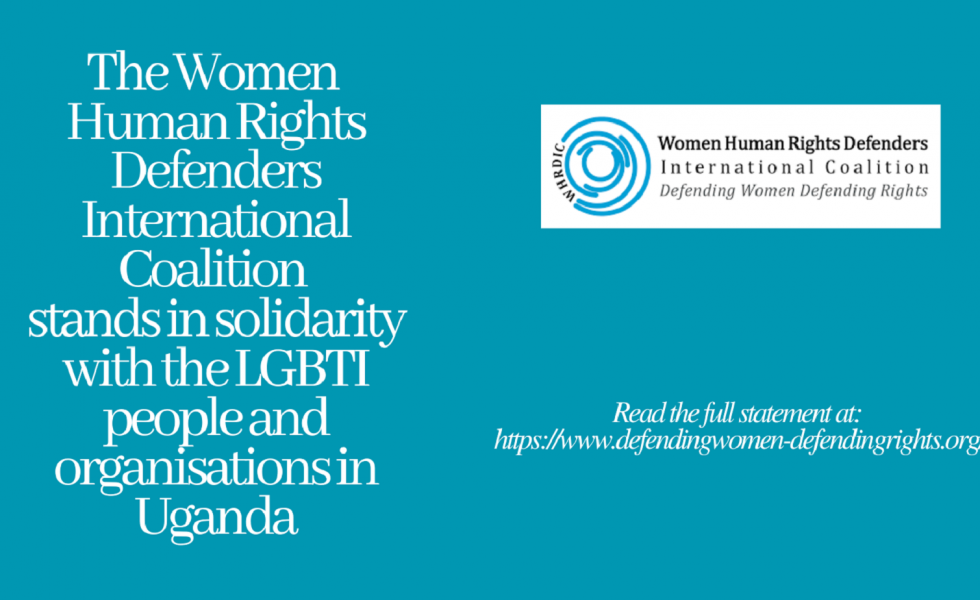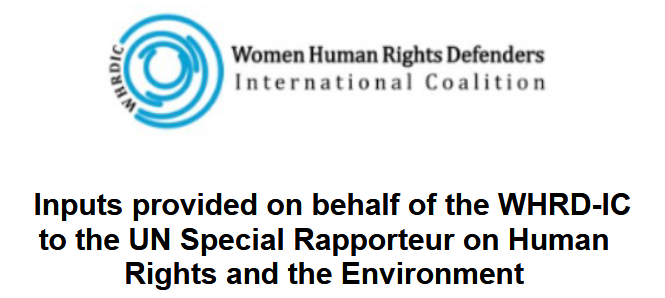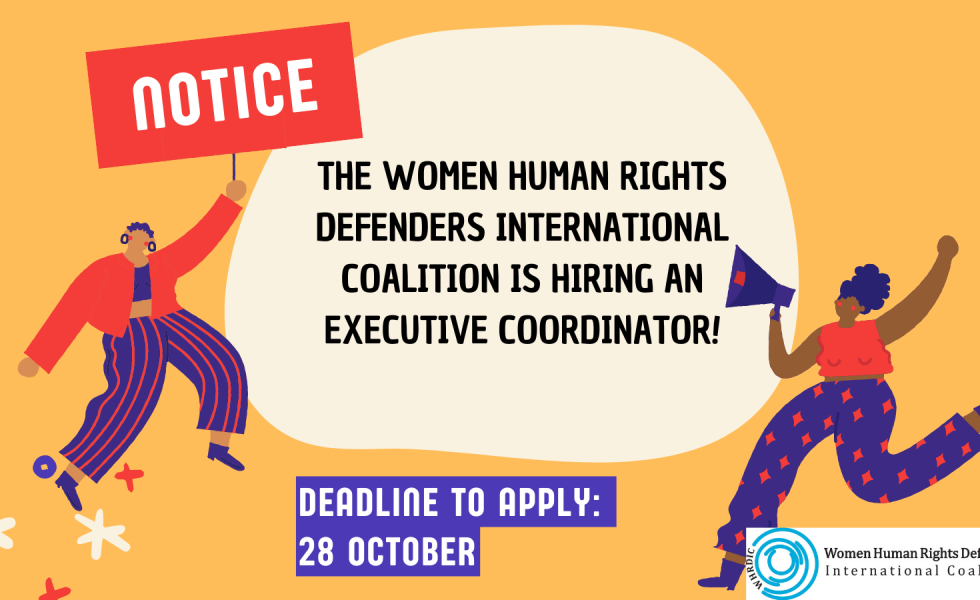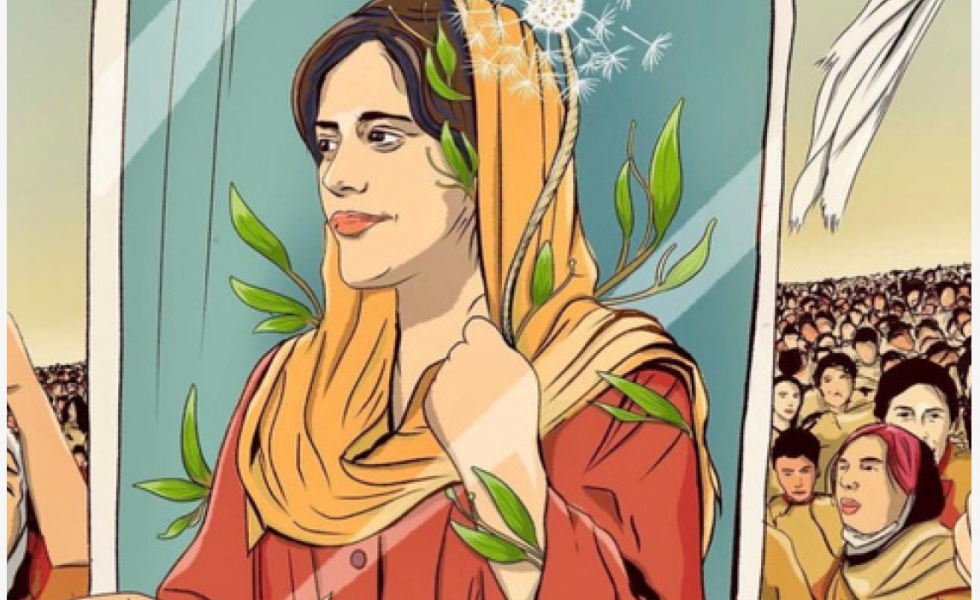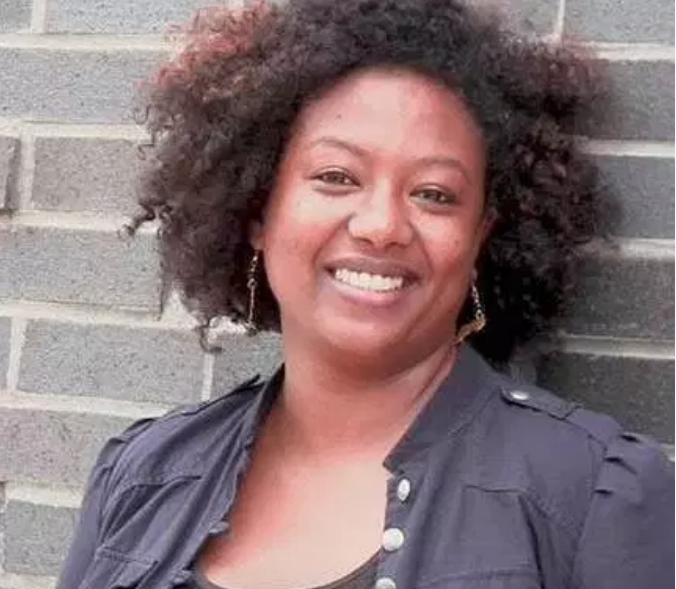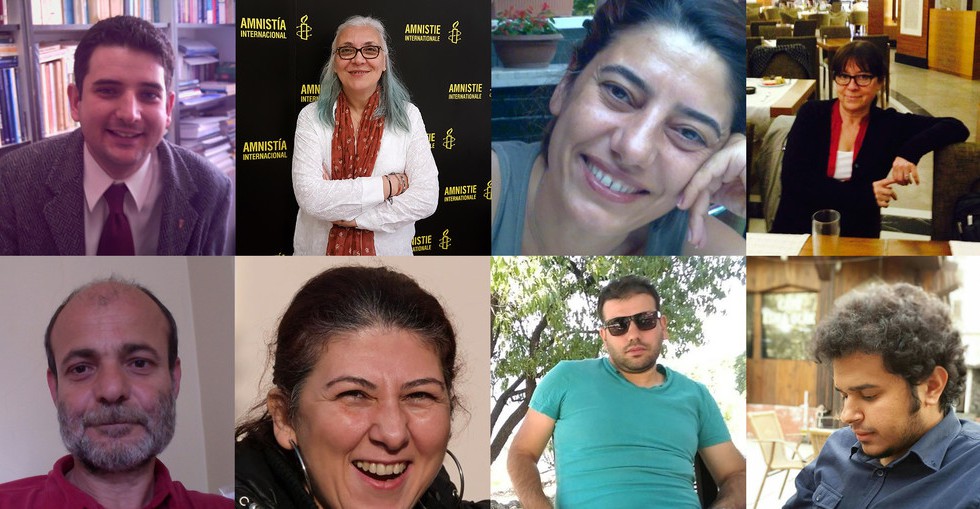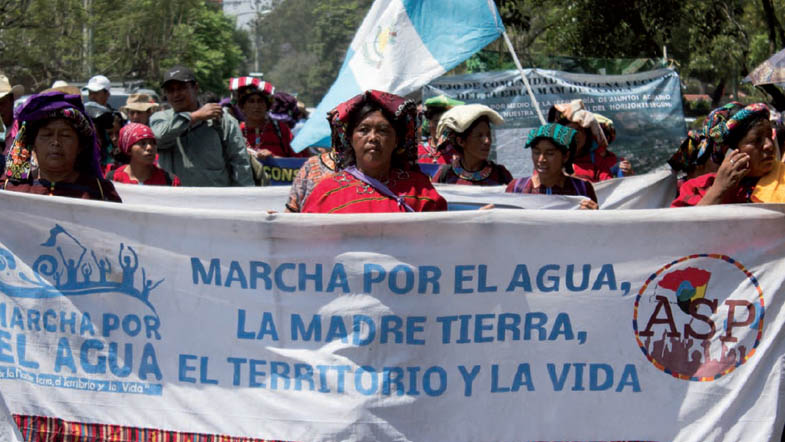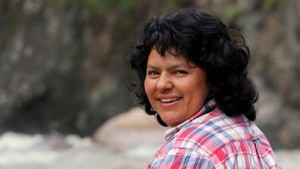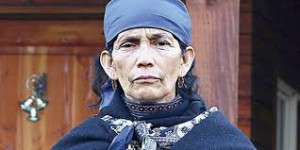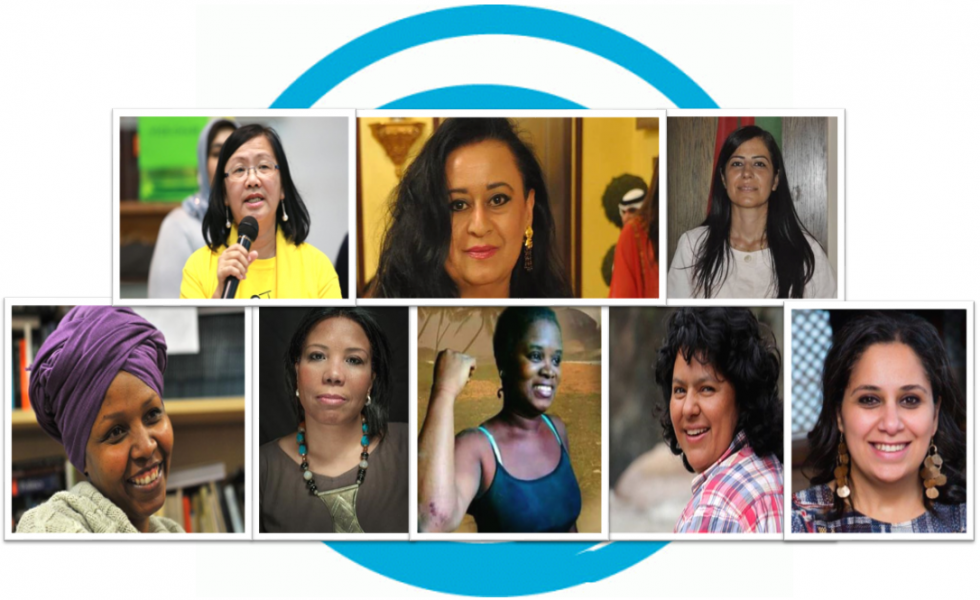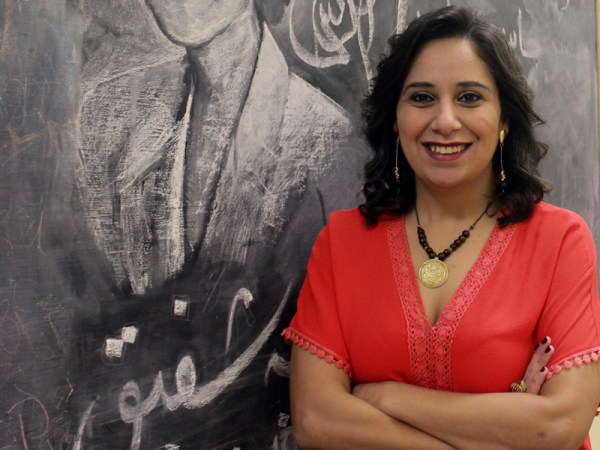
Calling on President Yoweri Museveni to urgently veto Uganda’s anti-LGBTI bill
As a network of 35 international and regional organisations that supports and protects women human rights defenders worldwide in their defence of human rights, the Women Human Rights Defenders International Coalition calls on President Yoweri Museveni to urgently veto Uganda’s anti-LGBTI bill.
Background
On Tuesday, March 21, 2023, the Ugandan parliament has passed a bill to impose life imprisonment punishment for same sexual conduct, 10 years for attempted same sex conduct and death penalty for “aggravated” homosexuality. The bill also criminalises the so-called “promotion” of homosexuality.
The 2023 Anti-Homosexuality Bill is not the first time the Ugandan Parliament has attempted to recriminalize homosexuality since the striking-down of Uganda’s Anti-Homosexuality Act, a colonial-era provision from the 1950 Penal Code Act, in 2014.
On 3 May 2021, Parliament passed the Sexual Offenses Bill, which sought to criminalise any “sexual act between persons of the same gender,” as well as anal sex between people of any gender. In August 2021, President Museveni rejected the law stating that many provisions in the proposed law were redundant as they were already provided for in existing legislations like the Penal Code Act.
Impact on LGBTI people, (W)HRDs and other segments of society
This cruel and repressive legislation will deepen discrimination, hatred and prejudice against LGBTI people, including those perceived as such, as well as human rights defenders and activists working on gender and sexuality issues, community centres and organisations working on HIV/AIDS, and any public figure, educator or community leader who will stand against homophobic practices.
Moreover, the new legislation will not only exacerbate hate crimes and discrimination on the basis of sexual orientation or gender identity (SOGI) but will also institutional them. While it is the positive obligation of any state to protect its citizens from abuse, threats and aggression, the new law will mean exactly the opposite – that the Ugandan government is entirely failing to comply with its national obligations towards its own people and is inciting violence instead of ensuring protection.
Meanwhile, the protection and promotion of fundamental human rights and freedoms is enshrined both in the Uganda’s Constitution and the African Charter on Human and Peoples’ Rights. As stated in the Ugandan Constitution, fundamental rights and freedoms of the individual are inherent and not granted by the State. Right to sexuality, dignity and private life are integral part of fundamental rights and freedom.
The Article V (i) of the same Constitution stipulates that “the State shall guarantee and respect institutions which are charged by the State with responsibility for protecting and promoting human rights…” and that “the State shall guarantee and respect the independence of non-governmental organisations which protect and promote human rights.” Protection of LGBTI rights is inseparable from the protection of other human rights. This means that with the new law not only the government violates the rights of its citizens based on their actual or perceived SOGI, but it also directly targets human rights defenders (HRDs) working on the ground to protect and promote the human rights of the targeted population.
While HRDs, especially those working on gender and sexuality issues, will increasingly become targets of hate crime, violence and harassment, the new law will be also used as a weapon to silence critical voices fighting for democracy or other intersecting human rights causes. A threat to be accused under the new legislation can thus affect HRDs and the civil society more broadly, as the right to freedom of speech and expression, the right to assembly and to freedom of association enshrined in the Article 29 of the Ugandan Constitution are thus endangered by its own state.
Women human rights defenders (WHRDs) who work on sexual and reproductive rights issues are particularly at risk of grave consequences, as they are often perceived to be challenging accepted socio‐cultural norms, traditions, perceptions and stereotypes about femininity, sexual orientation, and the role and status of women in society.
Article 33 (6) of Ugandan Constitution stipulates that “Laws, cultures, customs or traditions which are against the dignity, welfare or interest of women or which undermine their status, are prohibited by this Constitution”. This newly passed Anti-Homosexuality Bill is thus anti-Constitutional and encourages gender based violence, targeting WHRDs in particular.
Our demands
We urge the President of Uganda to immediately veto the 2023 Anti-Homosexuality Bill.
Particularly, we call on the Government of Uganda to:
- Guarantee in all circumstances that all human rights defenders without discrimination are able to carry out their human rights activities without fear of reprisals and free from all restrictions
- Protect and uphold the rights of LGBTI people and HRDs working on gender and sexuality issues from violence, discrimination, and other human rights violations;
- Uphold Uganda’s human rights obligations in line with its national, regional, and international laws.
WHRD-IC inputs to UN SR report on ‘Women, Girls and the Right to a Clean, Healthy and Sustainable Environment’
On behalf of the Women Human Rights Defender International Coalition (WHRD-IC) we thank the UN Special Rapporteur on Human Rights and the Environment for the opportunity to provide responses to select questions from their Questionnaire inputting into the report on ‘Women, Girls and the Right to a Clean, Healthy and Sustainable Environment’ to be presented at the Human Rights Council in March 2023.
The purpose of this submission is to provide inputs with a specific focus on women environmental human rights defenders, as deforestation, pollution, and other types of environmental degradation including by development projects and companies, as well as impunity for such actions, violate the rights of communities and especially women and girls who are at the forefront of climate and environmental justice movements.
- How are the climate, pollution, and biodiversity crises adversely impacting women and girls? What are the principal barriers facing these rights holders’ realization of the right to a clean, healthy and sustainable environment, a right that includes: clean air; a safe climate; access to safe water and adequate sanitation; healthy and sustainably produced food; non-toxic environments in which to live, work, study and play; healthy biodiversity and ecosystems; access to environmental and climate information; participation in environmental and climate decision-making processes; access to justice and an effective remedy when the aforementioned rights are violated.
Women and girls in all their diversity, as well as gender non-conforming and non-binary people, have been the leaders of environmental action for decades. Yet, in their work, including in defending the right to a clean, healthy and sustainable environment, women environmental human rights defenders face severe threats. In addition to threats faced by all defenders, women environmental human rights defenders face specific and enhanced threats stemming both from their identities, as well as their activities as environmental human rights defenders. In addition to gender identity, women environmental defenders who are part of historically oppressed groups such as: racial, ethnic, religious, and other minorities; disability rights defenders; lesbian, bisexual, trans, queer, intersex, and other gender diverse defenders; defenders of sex work, informal, domestic, and low-wage worker rights; migrant, displaced, refugee, or stateless persons and those affected by conflict and occupation; and defenders deprived of their liberty face intersectional discrimination and heightened vulnerability to attacks. Girls and young women’s activists also face specific challenges. These intersecting identities also influence social structures and cultural norms that can drive violence against defenders or deter them from accessing services and resources in response to violence. Given this, women environmental human rights defenders require enhanced and specific protection to be able to carry out their work without restriction or fear of reprisal.
It is almost 25 years since the UN Declaration on Human Rights Defenders first recognised the right to defend rights. More recently it has been recognised that impeding the rights of defenders also prevents the full realisation of the rights of the communities they serve and the rights they are seeking to protect. For this reason, we see protecting the rights of women environmental human rights defenders as intrinsically linked to the realisation of the right to a healthy environment.
Some of the specific barriers faced by women environmental human rights defenders in their work to promote and protect the right to a healthy environment are set out below:
a. Women environmental human rights defenders experience gender-based threats and harms and gender-based violence including harassment, gendered verbal abuse, ridicule and hostility, threats that contain sexualised and gender-specific messages, slander including attacks on one’s reputation; stigmatization; threats against one’s children and family; sexual abuse, and rape6, exclusion and public repudiation by state actors and corporations, military and police forces, private security services, as well as members of their communities7.
b. These gendered harms are rooted in misogyny and discriminatory gender norms shaped by complex socioeconomic, cultural and political structures to control and silence these defenders and suppress their power and authority as leaders.8 Violence against women environmental human rights defenders may attempt to recast women back into their ‘traditional’ gender roles, and occur particularly in contexts where there is a backlash against women stepping outside these roles.9
c. For women environmental human rights defenders in societies where gender-based discrimination and violence are socially normalised or permissible, there are additional barriers to accessing justice for the violence they face.10
d. Social and gendered norms limit women and girls’ participation in environmental and human rights protection.11 Women and girls are often excluded from or unable to participate in collective decision-making or dialogue with government, corporate or judicial stakeholders due to discriminatory social and cultural norms.12 Their voice, agency and participation are under-supported, under-resourced, under-valued and under-recognized, even though they make environmental action more effective.13
e. Indigenous women in particular, face disproportionate criminalisation and State-sanctioned violence, especially when they are defending their lands, territories and resources against extractive and exploitative industries.14 Around 1 in 10 of the environmental human rights defenders killed in 2021 were women, nearly two-thirds of whom were Indigenous.15
2. What are the specific obligations of States and responsibilities of businesses in terms of adopting a gender-responsive approach to protecting (for States) and respecting (for businesses) women’s and girls’ rights to a clean, healthy and sustainable environment? Please provide specific examples of constitutional provisions, legislation, institutions, regulations, standards, jurisprudence, policies and programs that apply a gender-responsive approach to ensuring the right to a clean, healthy and sustainable environment.
As those who are seeking to influence State’s actions regarding the right to the environment, women environmental human rights defenders are critical to informing State actions towards the adoption of a gender-responsive approach to protecting women’s and girls’ rights to a clean, healthy and sustainable environment. Below we have set out some select recommendations building on this principle:
a. States should ensure the meaningful participation of women environmental human rights defenders to eliminate barriers to participation due to gender or other structural elements.16
b. States should17 respect, protect and fulfil the rights of women environmental human rights defenders, and provide an enabling environment for the peaceful defence of their lands and territories18 and the promotion of the right to a healthy environment. This entails rectifying any policy or funding contradictions and breaking down silos to ensure cross-departmental coherence across all relevant policy areas, including human rights and human rights defender protection, peace and security, international cooperation, finance, trade and investment, corporate tax regulations and tax policy, climate and sustainable economic development – especially fossil industries and extractive projects that harm local
communities, their livelihoods and human rights.
c. If violations occur, States have an obligation to provide victims with access to effective judicial remedies and reparation.19
In order to fulfil the obligations listed above, we urge States to support the legally-binding UN instrument on transnational corporations and human rights. At the national and regional level, States should support processes towards the enactment of mandatory human rights and environmental due diligence legislation.
5. Please identify specific ways in which the rights of particularly marginalized or vulnerable women and/or LGBTI persons are (or should be) recognized and protected to enable the realization of the right to a clean, healthy and sustainable environment without discrimination based on sex or gender. “Marginalized women” include girls; women and girls in Indigenous local community, Afro-descendant and peasant communities, older women, women and girls with disabilities, LGBTI women and girls, migrant, displaced, and refuge women and girls, unmarried, informally married and widowed women and women and girls living in protracted armed conflict. How can these populations be empowered to increase their impact as agents of positive environmental transformation?
As noted above, women environmental defenders who are part of historically oppressed groups face multiple and intersecting barriers to the realisation of their rights. The specific and intersecting barriers faced by these groups of defenders, specifically legal barriers and barriers to equal participation, must be addressed to enable the realisation of the right to a healthy environment. This can be done in the following ways:
a. Recognize the invaluable contributions and leadership of structurally
marginalised women environmental human rights defenders to realise the right to a clean, healthy, and sustainable environment for all and take steps to centre their leadership and meaningfully engage them in decision-making at all levels – in particular indigenous women and girls.
b. Strengthen knowledge and capacity of structurally marginalised communities and defenders on their environmental rights, and increase policy level participation by creating awareness on opportunities and ensure there is direct involvement in decision making.20
c. Amend or repeal laws that directly or indirectly discriminate against structurally marginalised groups and defenders working to promote and protect the rights of these groups.
d. Enact laws that address the intersecting protection needs of members of
structurally marginalised groups and defenders.
8. How can businesses best contribute to the realization of the right to a clean, healthy and sustainable environment, based on sex and gender? What policies or practices are already in place to ensure that business activities identify, assess, prevent, cease, mitigate, and effectively remedy adverse impacts to women’s and girls’ rights to a clean, healthy and sustainable environment, as articulated in the UN Guiding Principles on Business and Human Rights.
Between January 2015 and March 2021, Business & Human Rights Resource Centre documented more than 3,800 attacks on human rights defenders raising concerns about business-related human rights abuses. An overwhelming majority of these were against land and environmental defenders.
Businesses must ensure that they respect the rights of women environmental human rights defenders working towards the realisation of the right to a clean, healthy and sustainable environment. There is a normative expectation regarding the corporate responsibility to respect human rights, which includes engaging constructively with human rights defenders who raise concerns about adverse impacts to people or the environment, and preventing, mitigating and remedying the human rights risks posed to them.
While the UN Guiding Principles on Business and Human Rights do reference human rights defenders specifically, the more recent UN Guidance on ensuring respect for human rights defenders21 outlines the practical implications of the obligation of companies to respect the vital work of human rights defenders. We have included some specifically relevant elements below. Businesses should:
a. Support human rights defenders and their work, publicly and privately.
b. Develop policies on respect for the rights of human rights defenders.
c. Take into account adverse impacts to human rights defenders as part of their human rights due diligence.d. Raise awareness and build internal company capacity to strengthen effective due diligence that takes human rights defenders into account.
e. Build and exercise leverage to address impacts of activities on human rights defenders.
f. Ensure equal participation of women environmental human rights defenders in stakeholder engagement or consultation processes.
g. Ensure that free, prior and informed consent, including women and girls, withdraw operations that do not fulfil the requirement.22
h. Refrain from attacking, harassing and/or intimidating women environmental human rights defenders including physical attacks, smear campaigns, and gender-based attacks.23
i. When redressing harm, businesses must ensure that provisions governing access to justice, remedy and support services are gender-responsive.24
9. Please share any good practices for: i) protecting women’s and girl’s rights to a safe, clean, healthy and sustainable environment; Good practices may occur at the international, regional, national, sub-national or local levels, and may include: the implementation of measures to ensure women’s participation in environmental decision-making processes; efforts to support women environmental defenders; measures to facilitate women’s access to climate or biodiversity finance; gender-responsive legislation, regulations, standards, jurisprudence, plans and policies; and initiatives to increase women’s access to and control over productive resources including land, forest resources, freshwater, credit, loans, and extension services. Examples that treat girls distinctly from adult women would be particularly appreciated.
A recent report by United Nations Environment Programme25 suggests 3 main ways to achieve a safe and enabling space for environmental human rights defenders (EHRDs):
- primary prevention, which involves creating conditions which prevent risks to EHRDs before they come into being;
- a focus on secondary prevention, which seeks to address early signs of threats and to rapidly respond to them in order to mitigate their impact and prevent their escalation;
- facilitating access to justice, including effective remedies.
Building on these three stages of protection, we have set out below some specific recommendations to enable women environmental human rights defenders to carry out their crucial work on promoting and protecting the right to a healthy environment:
a. Centre the leadership of all women and girls, in particular indigenous women and girls, in developing good practices regarding the relationship with the environment.
b. Provide political and financial support for community-based visions of development.26
c. Ensure that in any projects and investments the communities whose land, livelihood and resources are impacted are proactively and meaningfully engaged in decision-making, including actively engaging women and girls in the community, and that their decisions and consent (or lack thereof) are respected.
d. Include specific conditions on meaningful engagement of the local community and monitoring and reporting requirements in investment loans, as well as clauses that allow the suspension of the agreement if these are not met.
e. Provide meaningful opportunities for women environmental human rights defenders to participate in capacity building and training programs to strengthen their advocacy skills and to build broader support networks.27
f. Provide capacity building opportunities for States, funders, and companies to learn how to better support all women environmental human rights defenders and their communities.
g. Repeal repressive laws and regulations designed to delegitimise and criminalise activities of women environmental human rights defenders, and address the misuse of criminalisation processes aimed to stifle the work of women environmental defenders.
h. Provide the tools and strategies necessary to ensure holistic security / integrated protection of all women and girls who defend environmental rights, especially indigenous and land and territory defenders.
i. Create gender-sensitive prevention and redress mechanisms for harms experienced by women environmental defenders.28
j. Ensure States’ responsibility for what happens in their name and with their investments and their accountability to women environmental human rights defenders and all people, movements, and communities affected.
k. Commit to policy coherence for sustainable development by ensuring all policy areas and investments contribute to and uphold gender justice, human rights, climate justice and work to bring about structural change that gets at the roots of injustice and inequality.
l. Acknowledge the limitations and potential harms of multi-stakeholder approaches and of corporate capture in multilateral institutions, and address the harm done by public-private partnerships. Pay close attention to and attempt to address power imbalances in multi-stakeholder spaces that include governments, activists, and private companies, and ensure the equitable and full engagement of all women environmental defenders and affected communities.
m. Adopt a proactive role in endorsing the legally-binding UN instrument on transnational corporations and human rights.
WHRD-IC is hiring an Executive Coordinator
Apply to lead the Women Human Rights Defenders International Coalition (WHRD-IC)!
Deadline for application: 28 October 2022
Iran Protests: Feminists and WHRDs Detained
Read Femena latest reports
Since the start of mass protests in Iran following the death in custody of Mahsa Amini, who was arrested by “Morality” police for improper hijab, scores of ordinary citizens and rights defenders have been arrested. Femena published two reports in a series documenting the arrest of WHRDs in relation to the protests.
Sudan: WHRD Wini Omer may face death sentence
Statement launched by the Regional Coalition of Women Human Rights Defenders in the Middle East and North Africa.
Find original post here.
Journalist and WHRD Wini Omer could face the death penalty after allegations including prostitution and espionage.
The Sudanese authorities continue to violently suppress women human rights defenders. Recently, authorities have been trying to control the activities of WHRDs within the confines of their own private homes. On 20 February, the public order police burst in two a meeting between Wini Omer and her colleagues. They were arrested without any warrants and were taken to the Public Order police station.
The police accused Wini & her friend of ‘running a brothel’ and later accused them of ‘drinking alcohol’, although alcohol testing results proved the accusation wrong (Alcohol is banned to all Muslim citizens in Sudan).
WHRD Wini Omer stated that she & her colleagues were in a regular meeting. She was detained for five days, her laptop was confiscated and she was later banned from leaving the country.
On July 24, the Public Order Court held the first hearing of Wini Omer and set another hearing on 6 August to hear witnesses.
The WHRD is known for her dedication to defending human rights and advocating women’s rights and is a 2017 Mandela Washington fellow. The Sudanese authorities have previously targeted her in the past. In December 2017, she was arrested by the Public Order police for violating Article 152, relating to wearing a ‘scandalous’ outfit.
It is clear that the Sudanese authorities are using public order to target WHRDs and restrict their movement. In 2016, more than 15,000 women were sentenced to flogging as a result of prosecutions under public order, according to the stats of the “No to Women’s Oppression” initiative. The public order law explicitly discriminates against women, as most of its provisions are related to women’s agency: such as ‘indecency’, ‘scandalous outfits’, “women’s places’, women’s behavior, and so on.
These provisions are also implemented in a derogatory manner aimed restricting women’s presence in the public sphere, and to limit their mobility and social activity. There is a clear monopoly of legitimate legal procedures under the public order, whereby detainees are not allowed to defend themselves or to assign a lawyer, and the accused are brought to the court without being specifically informed of the charges against them. In all public order trials, the complainant and the witness are the same police officer. All of the aforementioned is a clear and gross breach of the principles of guaranteeing the right to a fair trial. It is also undeniable that the Sudanese government has exploited this law as a patriarchal tool to target women human rights defenders. This is evidenced by the escalation of the Sudanese authorities in their application of the provisions of the Public Order Law in response to the request of the US Deputy Secretary of State to review the Public Order Law and amend certain provisions.
The authorities are trying to take the case to a very dangerous path. The authorities are trying to charge WHRD Wini Omer with espionage, if convicted, she may face the death penalty.
The Regional Coalition of Women Human Rights Defenders in the Middle East and North Africa is in solidarity with WHRD Wini Omer and condemns the Sudanese authorities for targeting her.
The Coalition demands the Sudanese authorities to:
-Drop all charges against WHRD Wini Omer and ensure her safety along with her physical and psychological wellbeing.
-Revoke the travel ban against and end all of forms of persecution against her.
-End all forms of harassment against the WHRD Wini Omer, as she has mentioned that she was provoked, insulted and ridiculed during her presence in the police station.
– Review laws, specifically the Criminal Code to ensure that the dignity and rights of women are a priority.
The Regional Coalition also demands the International Community to:
-Urge the Sudanese authorities to drop all charges against WHRD Wini Omer
-Urge the Sudanese authorities to repeal article 152 of the Criminal Code and to make it compatible with the International Covenant on Civil and Political Rights.
– Pressure on the Sudanese authorities to repeal Article 152 of the Criminal Code concerning wearing the uniform so as to become compatible with the International Covenant on Civil and Political Rights
The WHRD IC stands in solidarity with those arrested in Turkey and calls for their immediate release.
The WHRD IC is deeply concerned about the recent detention of eight Turkish human rights defenders and two IT trainers and calls for their immediate and unconditional release. Among those who were detained from a human rights workshop are prominent members of the women’s rights movement, which is a clear attempt to destabilize and demoralize women who engage in legitimate and important activism to defend and promote human rights.
Those detained included some of Turkey’s leading women human rights defenders and human rights defenders carrying out crucial human rights work and two internationalIT trainers. They are: Idil Eser, Director of Amnesty International Turkey; İlknur Üstün, Women’s Coalition; Günal Kurşun, lawyer, Human Rights Agenda Association; Nalan Erkem, lawyer, Citizens Assembly, Nejat Taştan, Equal Rights Watch Association; Özlem Dalkıran, Citizens’ Assembly; Şeyhmuz Özbekli lawyer; Veli Acu, Human Rights Agenda Association; Ali Gharawi and Peter Steudtner both IT consultants delivering the training.
The detention took place on 5 July after Turkish police raided a hotel in Büyükada, Istanbul where the group was holding a capacity building workshop for human rights defenders. All ten individuals were held incommunicado for more than 28 hours.
The day after, on 6 July, lawyers were told that their detention had been extended for seven days, an extended period applicable for terrorism related investigations under Turkey’s state of emergency. It could be extended for a further seven days on request of the prosecutor before being brought before a judge. All are being investigated for membership of an ‘armed terrorist organization’’.
“This new low by the government demonstrates they will not shy away from going to extreme lengths to criminalize dissenting voices. The international community must not remain silent” stated one of the members of the WHRD IC from Turkey who requests to be anonymous due to security reasons.
In November 2016 the WHRD International Coalition released a statement expressing grave concern about the attacks on women human rights defenders in Turkey.
These detentions are yet another mark on an increasingly tarnished human rights record in Turkey. It is not acceptable for the international community to continue to remain silent before the onslaught on human rights and against those who dare make a stand in Turkey. President Erdoğan is presently meeting with world leaders at the G20 Summit in Hamburg – they must hold him to account for this deliberate attack which is a grotesque abuse of power.
For further info see Free Rights Defenders – Hak Savunucularına Dokunma
Defending the territory, defending life: Women human rights defenders resist extractivism in Latin America
By Laura Carvajal, Urgent Action Fund – Latin America
Throughout Latin America, women defenders of nature and the environment have organized themselves in diverse and creative ways to resist a hostile context of aggression and to transform an unsustainable extractive model that destroys their territories and ways of life.
Since the 1990s, Latin America has become the region that receives the highest figures of foreign direct investment for the extractive sector. In this period the extractive frontier has expanded so rapidly, generating pressure on diverse strategic ecosystems such as watershed headwaters, the Amazon jungle, moors, glaciers, high Andean lagoons, among others. In addition, along the continent large projects of road and energy infrastructure have been built. These projects are imposed in the territories of peasant communities, Afro-descendants and indigenous peoples, generating irreversible socio-environmental impacts and incurring serious human rights violations.
This model, which perpetuates historical inequalities and violence in the continent, has used strategies such as land deprivation, militarization and legislation in the service of the international financial systems. It restricts the right to participation, association, freedom of expression and protest, while allowing corruption, invasion and violent acquisition of peasant lands and ancestral territories. Faced with the legitimate resistance that comes to protect the territories, social protest has been brutally repressed, and defenders, such as Berta Cáceres, indigenous Lenca leader of Honduras, have been persecuted, criminalized and murdered. Thus, criminalization, which aims to frighten organizations and communities, to neutralize their struggles, also has specific ways of operating towards women. This phenomenon, ranging from harassment, verbal assaults, indictments and campaigns of defamation, to the legal prosecution and imprisonment seeks to delegitimize their work and punish them for questioning the established gender roles. They are singled out by presidents, corporate workers, religious fundamentalists, their community or their companions of being ‘witches’, ‘infants’, ‘bad wives’, ‘party women’ while questioning and trying to nullify their leadership.
In Ecuador, in the midst of the peaceful protest crackdown in August 2015, women from the community of were violently detained, beaten in their womb and threatened with rape. Today 5 of them are tried and two have been sentenced to 4 years in prison. In Chile, Mapuche women, like Lonko Juana, Machi Millaray Huichalaf, political and spiritual authorities have been imprisoned, physically and sexually abused; Machi Francisca Linconao is still deprived of her liberty for a crime that she never committed, while her life and health are at risk.
Extractive projects have a specific impact on women, exacerbating violence against them and discrimination in terms of participation, access to land and health. Women defenders face specific risks, due to the magnitude of the powerful interests they confront, by questioning and destabilizing systems of oppression based on gender, race and class. For them, the spectrum of actors that can attack them is broad, as they not only confront business and state actors, but they are also vulnerable within their families, communities and organizations, when patriarchal practices naturalize violence towards them. In recent decades, there have been more than 23 feminicides of HRDs, who have raised their voices against mining projects, dams and monocultures, among others.
Sexual violence constitutes one of the main forms of violence against women and is a weapon for the dispossession of their territories. In Guatemala, in Santa Cruz Barillas and Estor-Izabal, in the context of declaration of states of siege and forced evictions respectively, indigenous women, who resisted extractive industries, were raped and sexually harassed by security agents.
However, within the framework of their work in defense of the environment and nature, women have developed various actions that have allowed the positioning of their demands and particular perspectives. In many occasions, they have been able to temporarily stop or paralyze extractive undertakings that threaten their territories as in La Puya and Santa Cruz Barillas- Guatemala, in Santa Barbara- Honduras, in Cajamarca- Peru, in Río Bueno- Chile, and Ituzaingó-Argentina, among others.
In Latin America, women´s struggles are heterogeneous depending on the local and national context and the nature of the threats they face in their territories. Women have organized autonomously, regionally, inter-ethnically; they have created organizations of environmental protection, networks and through young, feminist, antiracist, art and cultural groups. They have generated significant transformations in the personal and the collective spheres and have built new practices towards other forms of protection and integral security.
WHRDs and activists demand freedom from repression and violence, fear, land dispossession and environmental degradation. Now more than ever, they hope for inter-movements political action and international solidarity and commitment.
“Pay attention. Stand up with and for us. Our fates are connected, and what happens to us can happen to you!” – Berta Caceres, 2010.
Women Human Rights Defenders International Coalition (WHRD-IC) Statement on International Women Human Rights Defenders Day, 29 November 2016
Today we celebrate International Women Human Rights Defenders Day. Women human rights defenders (WHRDs) are women who defend human rights, and all persons who defend the rights of women and girls and the rights of lesbian, gay, bisexual, transgender and intersex (LGBTI) people. They are leaders in the protection of human rights, including in the areas of health, education, justice, employment, corporate accountability and environmental protection, and ensure state and non-state actors are held accountable for human rights violations and abuses.
However, instead of being applauded, encouraged and recognised as key agents of change, WHRDs more often than not are attacked, threatened, intimidated, imprisoned, harassed and even killed. Particularly, when WHRDs challenge gender stereotypes, structures of power and profit, and patriarchal cultural and religious norms and values. For example, when they work on issues such as sexual and reproductive rights, violence against women, transitional justice, environmental rights or indigenous people’s rights.
International WHRDs day has been celebrated since 2006. States’ international commitments to protect the rights of WHRDs to promote and protect human rights stretch back even further to the Universal Declaration of Human Rights (1948), the International Covenant on Civil and Political Rights (1966), the International Covenant on Economic, Social and Cultural Rights (1966), the Convention on the Elimination of all forms of Discrimination against Women (1979) and crucially, the Declaration on Human Rights Defenders (1998). Nonetheless, these rights have not been fully realised and accountability for violations is worryingly insufficient.
It is urgent that governments around the world publicly recognise WHRDs as legitimate and vital actors in advancing the implementation of all human rights. They must also acknowledge and send a clear signal that challenging deep-seated, discriminatory and unjust patriarchal structures and gender stereotypes is crucial for the realisation of a peaceful and just world without discrimination, oppression or exploitation.
In order for WHRDs to carry out their important work free from harassment, intimidation and violence, and to meaningfully participate in the development and monitoring of relevant policies and programmes for the advancement of gender rights and the rights of women and girls, as well as social and environmental justice, all governments must:
- urgently put in place fully-resourced plans of action, including effective protection measures and impartial investigations to bring to justice those responsible for violence or threats; and
- establish and/or strengthen national and regional laws in line with the UN Declaration on Human Rights Defenders, as well as international standards relating to non-discrimination particularly based on sex, gender, sexual orientation.
On this day of mobilisation, we also ask all state and non-state actors, from politicians to business leaders, as well as ordinary citizens, to bring international attention to the following urgent cases (which are representative of the challenges being faced by WHRDs worldwide) using their personal and professional platforms and channels:
- Cristina Auerbach (Mexico): https://www.frontlinedefenders.org/en/case/cristina-auerbach
- Ghada Jamsheer (Bahrain): https://action.manifesta.net/petitions/ask-the-king-of-bahrain-to-stop-persecuting-women-human-rights-defenders
- Mozn Hassan, Azza Soliman and Drm Aida Seif ElDawla (Egypt): http://www.omct.org/human-rights-defenders/urgent-interventions/egypt/2016/11/d24071/ and http://freeassembly.net/news/egypt-travel-bans/
- Eren Keskin (Turkey): https://www.amnesty.org/en/get-involved/take-action/w4r-turkey-eren-keskin/
- Sirikan “June” Charoensiri (Thailand): http://www.omct.org/human-rights-defenders/urgent-interventions/thailand/2016/10/d24026/
For further information, please contact the Women Human Rights Defenders International Coalition (WHRD-IC) through our website: http://www.defendingwomen-defendingrights.org/contact/
Visionary, Defiant and Resilient: Bahrain’s Dissenting Women
This article appeared in the Huffington Post written by Semanur Karaman. We re-post it here.
The Gulf State of Bahrain is known for its extravagance. Gloating over multi-million dollar investments in tourism, sports and banking, the kingdom does not shy away from showing off with the Grand Prix races, or celebrity visitors the likes of Kim Kardashian. This alone, makes the Kingdom look like a miracle of some sort to many who associate the Middle East with subsequent failures, instability and conflict.
Read the full post here – http://www.huffingtonpost.com/semanur-karaman/visionary-defiant-and-res_b_12523172.html
Mozn Hassan and Nazra for Feminist Studies receive the “Right Livelihood” Award
The “Right Livelihood” Award, known as the Alternative Nobel prize was awarded to Nazra for Feminist Studies. Feminist activist and woman human rights defender Mozn Hassan and Nazra received this award for the work they conducted on several issues – including and not limited to – combating sexual violence against women in the public sphere and provision of various support services to survivors of these crimes, supporting women’s right to participate in the political sphere and guaranteeing the inclusion of their rights in the constitution and Egyptian legislation, supporting young feminist initiatives in their work on different issues, and supporting women human rights defenders and shedding light on the violations they encounter and urging the Egyptian state to undertake necessary measures to ensure a real and effective participation of women in the public sphere, and exercise their fundamental right to bodily integrity.
It is worth mentioning that the “Right Livelihood” award known as the Alternative Nobel was founded in 1980 to recognize and support the courageous work of individuals and groups that present unusual and innovative solutions in the face of several important issues that face our world today. Approximately 166 individuals and groups received this award from 68 countries, where in Egypt both Dr. Ibrahim AboElEish – Applied Chemistry Scientist – and Sekem Foundation received it in 2003, and the Architect Hassan Fathy received the founding award in 1980. Nazra for Feminist Studies values this recognition, and asserts its continuation in moving forward to achieve its vision and objectives represented in ensuring a safe public space for women in Egypt, where they exercise all their fundamental rights, and also asserts that what Nazra has accomplished is a continuation and sustainability of what the Egyptian Feminist Movement has accomplished in almost 100 years,in addition to the current role worthy of recognition of our dear partners on the local, regional and international levels.
We also note that feminist activist and woman human rights defender Mozn Hassan will not be able to travel and receive this award due to a travel ban that was issued against her by an order from the general prosecutor within the context of her inclusion in Case 173 for 2011 commonly known as the “NGO Foreign Funding Case”.
 Women Human Rights Defenders International Coalition
Women Human Rights Defenders International Coalition